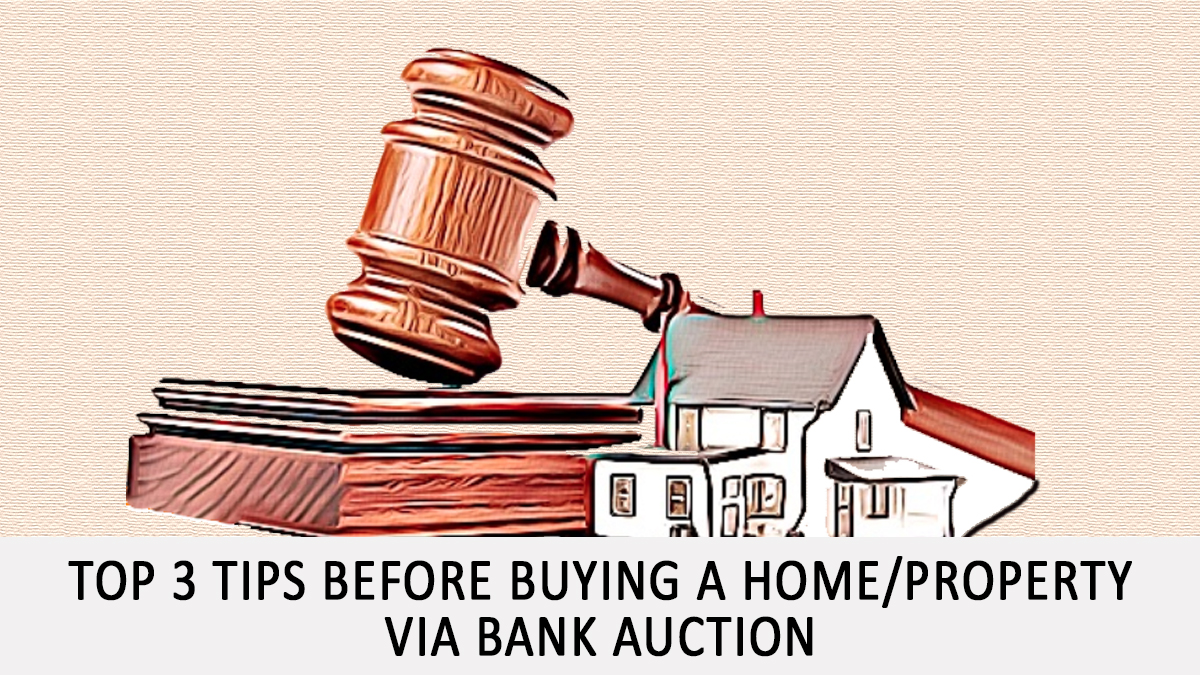Important Points to Know Before Buying a Property via Bank Auction
Every now and then banks are auctioning thousands of open plots, residential, commercial, and industrial properties. These are properties of the borrowers who defaulted on their loans in the past. Banks keep coming up with property auctions on a regular basis.

Banks look to recover their dues by confiscating the defaulter’s property and putting it up for auction under SARFAESI Act, 2002. Before you participate in any such property auction, be aware of the pros and cons. There are chances of getting a good deal in property auctions.
It is very important to inspect the property, evaluate the cost of repair and renovation, and factor in the expenses involved before bidding for any bank auction properties.
Here’s what works well in a property e-auction.
Comparatively lower price
“Properties are offered at a lower cost than existing market prices,” says Anuj Puri, Chairman of ANAROCK Property Consultants. Usually, a property comes at 10-20 percent below the market price through the property auction. Typically, banks fix the reserve price or the base price very reasonably so that more people participate. “One might get a real value deal. Since banks may not have been able to sell it in previous auctions, they revise the price downwards after every unsuccessful bid,” says Anand Moorthy, business head, data intelligence, and asset management, PropsAMC owned by SquareYards.
Location advantage
A new supply of properties typically comes in the outskirts or suburbs of metro cities. For buying property within cities, most people need to depend on the resale market. In the case of property auction, “there is potential to secure a property in a premium location,” says Puri. Moorthy echoes the thought: “Prime properties might be available here,” he says.
No project delay
Unlike under-construction projects where there is always a risk of non-delivery or delay, purchases at property auctions carry no risk, as there is “no risk of non-delivery by the builder,” says Puri.
Having said that, a property e-auction by a bank is not always a bed of roses. What could go wrong, then?
Property could be in bad shape
If any borrower defaults on a loan and if the bank confiscates the mortgaged property, it is just interested in selling it and recovering its dues. It is not the bank’s responsibility to spruce it up to make it look attractive. Auctions of the properties are generally done on an ‘as is where is’ condition`.
Before you participate in the bid, it is very important to inspect the property, evaluate the cost of repair and renovation, and factor it into the bidding price. Besides, “there might be unpaid costs such as property tax, maintenance,” says Moorthy.
Do your due diligence
Now, “a buyer should check on whether there is an attachment of the property under income tax, court cases of owners, property tax or unknown family disputes and so on,” says Moorthy. However, “title documents are not allowed to be inspected by the banks before bid usually and it might come as a surprise having other undisclosed encumbrances,” warns Moorthy. Remember, the bank absolves itself from third-party claims once the deal is concluded.
Is anyone living in the flat currently?
This is very important. Sometimes, even though the bank comes in possession of the confiscated property, there could be tenants living in the flat. Remember, banks have only legal documents or, say, a symbolic possession of the property. In such cases, the onus of getting the property vacated also shifts to the new buyer. At times, it could be very difficult to get a property vacated from its current occupants. It is better to ensure that there are no pre-occupied properties before bidding.
No upper limit of property price
You know the base price, but the property will get sold to the person who is willing to pay the maximum amount. Therefore, “it is impossible to anticipate what the highest bid for any given property will be, so there is no assurance of acquiring a property one is interested in at the desired price,” says Puri.
Legal hurdle
“A successful acquisition will depend on both the bank and the property's original owner being satisfied with the outcome so that there is no possibility of legal setbacks later on,” says Puri. “The original owner may sue the bank, resulting in legal delays for the buyer,” he adds.
Small window to make payment
When you buy an under-construction property, you have the option of paying in installments according to the progress in construction. Even when you buy property in the resale market, you usually get 45-60 days time to make the full payment, sometimes even longer if both the parties agree. However, in the case of property purchased at an auction, first, you have to deposit 10 percent of the property’s base price as earnest money. On making a successful bid, 25 percent of the sale price has to be deposited by the winner by the next working day. The remaining 75 percent amount is to be paid within 15 days of the auction being won.